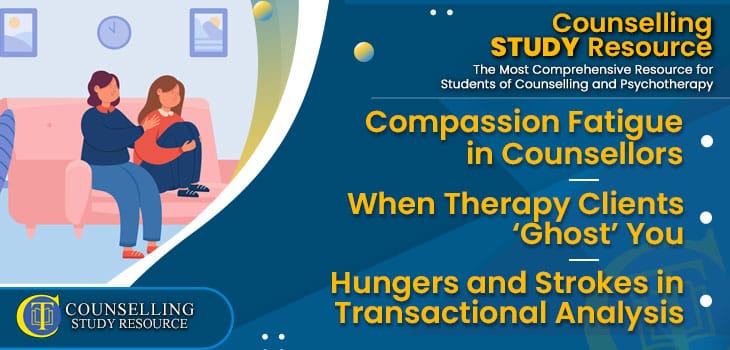See Counselling Skills Used in Real Sessions by Qualified Therapist
Real Sessions – Real Presentations – Real Skills
Gain the competence and confidence to use counselling techniques effectively!

In Episode 269 of the Counselling Tutor Podcast, your hosts Rory Lees-Oakes and Ken Kelly take us through this week’s three topics:
Compassion Fatigue in Counsellors
Compassion fatigue will not only affect you, but also your clients and your practice.
Some of the signs of compassion fatigue in counsellors and what you can do to tackle it are highlighted in this section:

Real Sessions – Real Presentations – Real Skills
Gain the competence and confidence to use counselling techniques effectively!
In this section, Rory and Ken discuss what thoughts and feelings we might experience when a client ‘ghosts’ us.
The key points of this section include:

On-demand access to a rich lecture library covering theory, skills, and professional development for counselling students—Mapped to the UK awarding body criteria
“The Student Library has been BRILLIANT, I can’t recommend it enough!
It has been a lifeline in helping me prepare for practice and my first clients. If you’re considering it, go-for-it, it’s absolutely worth it!”
Kelly – Graduated and now in practice.
In this week’s ‘Practice Matters’, Rory speaks with Lisa Mathurin about hungers and strokes from transactional analysis.
The main points of this discussion are as follows:
Compassion Fatigue in Counsellors

Get on-demand Certified CPD that is implementable in your practice
